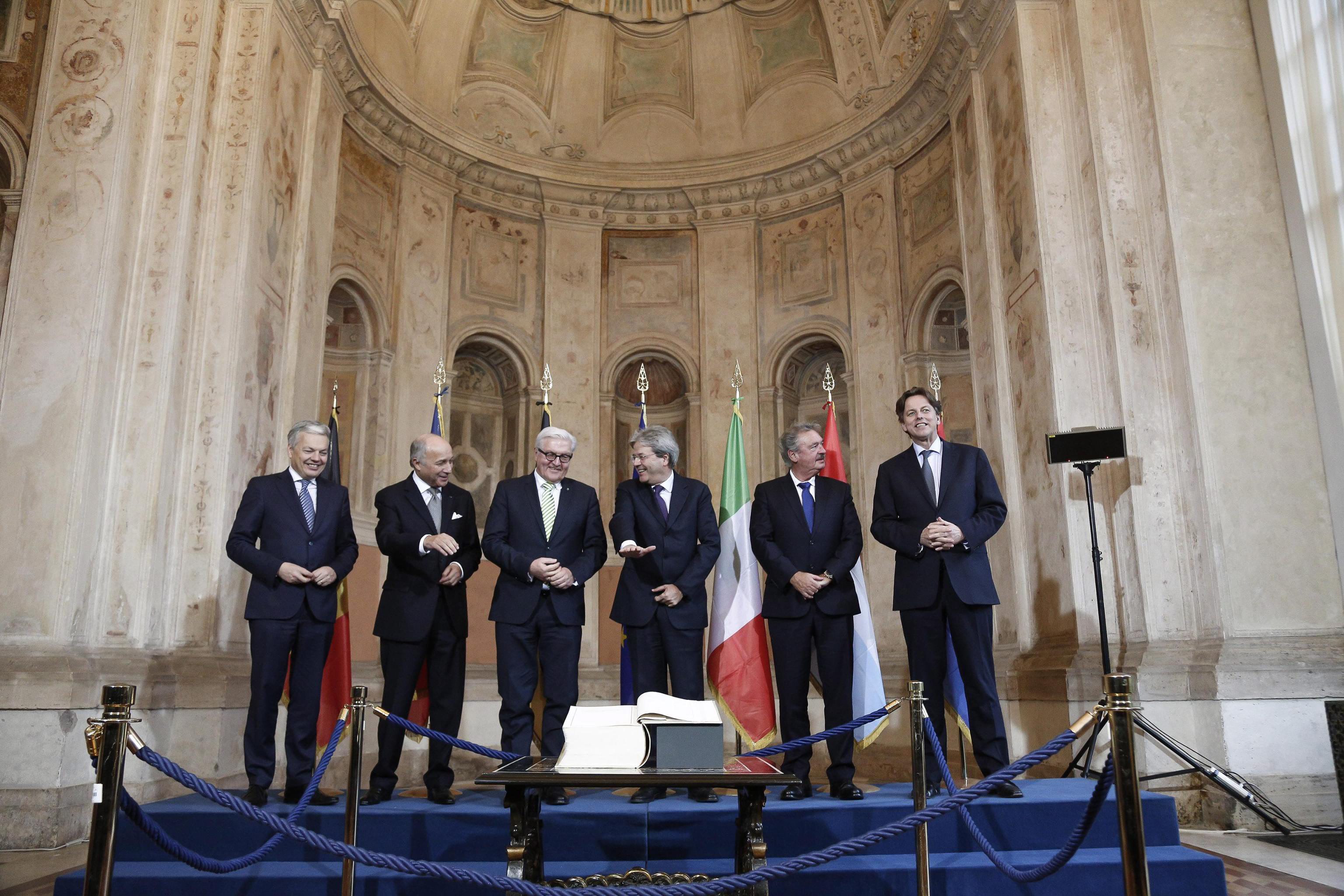Shortly before the 60th birthday of the European Union, the six founding members – Belgium, France, Germany, Italy, Luxembourg and the Netherlands – issued a joint communiqué to express their concern over “the State of the European project” and the “very challenging times”.
The joint communiqué, which aims to strengthen cohesion within the union, was issued following the meeting of the six Ministers of Foreign Affairs in Rome. The full statement is as follows:
The Ministers of Foreign Affairs of Belgium, Germany, France, Italy, Luxembourg and the Netherlands met on 9 February 2016 in Rome.
They declare:
as Europe is approaching the 60th anniversary of the Treaty establishing the European Economic Community on 25 March 2017, we are concerned about the State of the European project. Indeed, it appears to be facing very challenging times. It is in these critical times that we, as founding members, feel particularly called upon.
We will not forget that Europe had to go through violent conflicts and a painful history before it pursued the path of integration. For many generations, Europe was merely a dream of peace and understanding, accompanied by the hope for human dignity, freedom, democracy, the rule of law and solidarity on the continent. The European project has enabled us to make these very principles the foundation of our coexistence in Europe. They have been the basis for our security, stability and prosperity. They are also our capital for our common future. We firmly believe that the European Union remains the best answer we have for today’s challenges and allows for different paths of integration. We remain resolved to continue the process of creating an ever closer union among the people of Europe.
Europe is successful when we overcome narrow self-interest in the spirit of solidarity. We have to be ready to strive for European solutions. The EU is much more than the sum of its 28 Member States. This applies also to the refugee crisis, one of the biggest challenges the European Union is currently facing. The priority is to fully implement our common decisions with efficiency and humanity. A better management of the Union’s external borders is essential in order to make them more secure without hampering the fluidity of movement and the Schengen acquis. Europe needs a balanced and geographically comprehensive approach, based on solidarity and responsibility. It is crucial to reinforce overall cooperation with countries of origin and transit, with a view to stemming the flows of irregular migrants and to tackling the root causes of migration.
Recent terrorist attacks targeted the fundamental values and human rights that are at the heart of the European Union – solidarity, freedom, including freedom of expression, pluralism, democracy, tolerance and human dignity. All citizens have the right to live free from fear. Common values must be safeguarded and violence and racism must be prevented. More must be done to prevent radicalization and develop a counter-narrative. This also means fighting the enemies of our fundamental values. We confirmed the need to further reinforce action against terrorist threats, in full compliance with human rights and the rule of law.
We discussed the role that the Union is called to perform as a global player. The new EU global strategy on foreign and security policy will provide the Union with an updated vision and effective tools for boosting its action. It will emphasize the importance of the European security and defense policy at the core of the European commitments for peace and stability in the world. A democratic, stable and prosperous neighborhood is a strategic priority and in the fundamental interest of the EU.
We declare and reconfirm our strong commitment to Europe and the European project and invite all other Member States to join.





